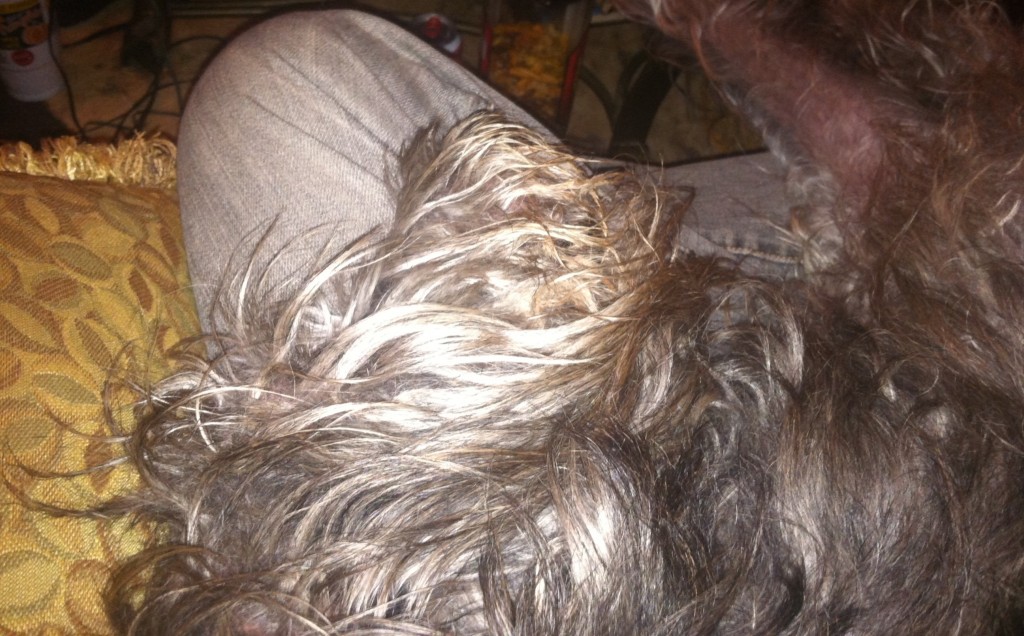I’ve been blogging for ten years and then some. I’ve never tried and come up completely empty on something to say about the occasion. This year I did.
I can’t get past the question, Is this what they were willing to fight and bleed and die for? My answer is no.
What I’m reminded of in the rhetoric of the day is what high school lotharios tell dumb cheerleaders they want to take advantage of. I admire you, your character is inspiring, and I will definitely respect you in the morning.
Crap. All of it.
Our president despises the military, knows nothing of it. His background is so dim that even as Commander in Chief he made reference to the Marine Corpse.
Celebrities and advertisers for nominally good causes produce hundreds of supposedly estimable “charity” spots designed to make us think that all veterans come home from war with two missing limbs, a bullet in the brain, a ruined face, or crippling mental illness.
The media rhetoric, the yellow ribbon (yellow for hostage?) appliqués on SUVs and ESPN anchors, the over the top pageantry at NFL games are all about proclaiming veterans as heroes. The subtext is all about depicting veterans as victims, fools, idiots, and gun-toting killers.
Ironically, it’s possible that the one guy out of step this year was Kevin Blackistone, who suddenly denounced — in the context of Northwestern’s bleeding flag Veterans Day uniforms — the close association between football and the military, going so far as to condemn the singing of the National Anthem before games as the ritual repetition of a “war anthem.”
Why ironic? Because Kevin Blackistone is not just a sports reporter with a bug up his ass about the National Anthem. He’s also a graduate of Northwestern University’s Medill School of Journalism, a college professor of journalism at U. Maryland, and a very political guy. Like a significant number of his other ESPN colleagues, including Michael Wilbon, Rich Eisen, J.D. Adando, Mike Greenberg, and numerous sports reporters at media outlets like the New York Times.
Back in the Sixties, the radical mantra was that “everything is political.” And so it has become. And is.
Makes you wonder, doesn’t it, whether the blood streaked Northwestern uniforms were ever intended as a tribute, except to the willing dupes. Maybe they were always meant as an act of provocation, an excuse for raising the alarm.
I know I’ve had it with the football field sized flags, the saccharine celebration of veterans by lefty sportscasters who never acknowledged anything military during the bloodiest days of the Iraq War. George W. Bush was president then. The current Cirque du Soleil style military glamour in American stadiums began with Obama’s election. And I think the intent is to end it there too. The smart ones will step forward to tell us they are tired of celebrating killers and the lame and the halt which are all the military ever bequeaths us.
Problem, though. Veterans aren’t all heroes, and they aren’t all victims. They’re not a thing apart, a peculiar subset of an, uh, more civilized population that we must constantly thank for their service, applaud at airports, and dutifully tear up over when they return from duty to surprise their kids in a rabbit costume at school. Even though we know they’re trained killers.
What we’re being subtly asked to accept is that they’re a strange, complicated, superior/inferior thing much like the NFL itself. Which is one more lie. They’re just US.
A few truths the libs don’t like. The overwhelming majority of veterans aren’t combat troops. They’re clerks, technicians, MPs, cooks, mechanics, engineers, and skilled and unskilled labor. We owe them not because they did it all for some selfless ideal of liberty but because they answered a call, voluntarily or via the draft, to serve their country. Which they did.
The word we should be remembering today because it is in such peril is discipline. Veterans live under an onerous regime of orders, assigned and frequently boring tasks, sometimes horrifyingly frightening missions, which they accept because they have, or acquire, the character to do what needs to be done, whether anyone in the population at large appreciates it or not.
It’s not all or even mostly about peril. It’s about a sense of duty, which leads to loftier virtues. Those who haven’t forgotten everything, or never knew anything, will recall MacArthur’s valedictory at West Point, titled “Duty, Honor, Country.”
“Duty, Honor, Country” — those three hallowed words reverently dictate what you ought to be, what you can be, what you will be. They are your rallying point to build courage when courage seems to fail, to regain faith when there seems to be little cause for faith, to create hope when hope becomes forlorn.
Unhappily, I possess neither that eloquence of diction, that poetry of imagination, nor that brilliance of metaphor to tell you all that they mean.
The unbelievers will say they are but words, but a slogan, but a flamboyant phrase. Every pedant, every demagogue, every cynic, every hypocrite, every troublemaker, and, I am sorry to say, some others of an entirely different character, will try to downgrade them even to the extent of mockery and ridicule.
But these are some of the things they do.º They build your basic character. They mold you for your future roles as the custodians of the nation’s defense. They make you strong enough to know when you are weak, and brave enough to face yourself when you are afraid.
They teach you to be proud and unbending in honest failure, but humble and gentle in success; not to substitute words for action; not to seek the path of comfort, but to face the stress and spur of difficulty and challenge; to learn to stand up in the storm, but to have compassion on those who fall; to master yourself before you seek to master others; to have a heart that is clean, a goal that is high; to learn to laugh, yet never forget how to weep; to reach into the future, yet never neglect the past; to be serious, yet never take yourself too seriously; to be modest so that you will remember the simplicity of true greatness, the open mind of true wisdom, the meekness of true strength.
Yes, it’s an ideal. Not one everyone attains, not even every veteran. But no one ever gets there without demanding of himself more than he thinks he can achieve.
However slowly or reluctantly, our veterans have accepted the challenge of this demanding ideal. Many fail, many are broken, many are killed, and many are maimed. But they are still US. They’re the ones among us who saw that personal dignity meant believing as much in one’s self as in the system that commanded obedience. They grew from the experience.
Now we confront a new day, one that demands obedience with no regard for personal dignity. Soldiers at the front are not nearly victims as much as those who are content to be cattle branded with government labels, categories, forms, and executive orders.
I can’t believe that this day, Obama’s day, is what they were fighting for — or even peeling potatoes for. They never consented to be nothing but statistics in a phony narrative of social justice, historical vengeance, and hope-crushing egalitarianism.
Pardon me, but I’m thinking all the way back to 1999, the year my father died. He told me, days before his death, that everything he had fought for in World War II was gone. He hadn’t been fighting for the government or the state. He’d been fighting for the life he hoped for the people he knew and grew up with. He didn’t want to be remembered as a fighter pilot. He wanted to be remembered as a good man.
So forget the camo. Forget the emblems and the salutes. Veterans are Americans, the people next door. Some more deeply affected than the rest of us. But still us.
Have I got any of this wrong, George? If so, tell me.












